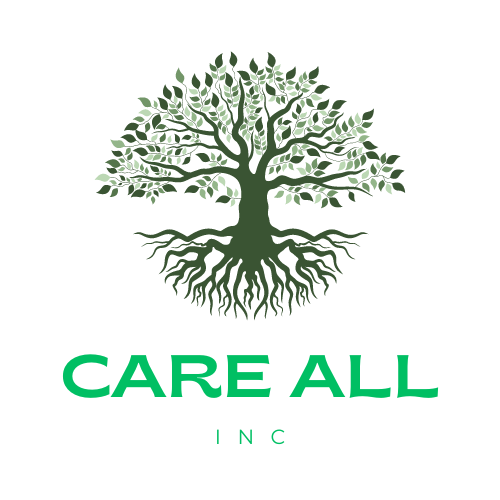In today’s interconnected world, the food industry faces an ever-evolving landscape of regulations and standards. As businesses expand their reach across borders, adapting to global food regulations has become crucial for success.
This comprehensive guide will help you navigate the complex world of international food safety standards and compliance, ensuring your business stays ahead of the curve.
The global food production industry is constantly changing, with new laws and regulations emerging to address safety concerns, environmental impacts, and consumer demands. For businesses operating in this sector, staying compliant is not just a legal requirement but also a competitive advantage.
By aligning your operations with global food regulations, you can build trust with consumers, expand into new markets, and safeguard your brand’s reputation.
Understanding the Importance of Global Food Regulations
In today’s interconnected world, understanding the importance of global food regulations is crucial for businesses operating in the food industry.
These international food safety standards serve as the backbone of consumer protection and fair trade practices across borders. Here’s why compliance matters:
- Consumer Safety: Food industry regulations are designed to prevent foodborne illnesses and ensure product quality.
- Market Access: Adherence to international food safety standards can open doors to new markets and opportunities.
- Brand Reputation: Compliance builds trust with consumers and enhances your brand’s reputation.
- Competitive Edge: Meeting or exceeding regulatory requirements can set your business apart in a crowded marketplace.
By prioritizing regulatory compliance, food businesses not only mitigate risks but also position themselves for sustainable growth in an increasingly regulated global market.
Key Players in Global Food Regulation
To effectively navigate the complex landscape of global food regulations, it’s essential to understand the key organizations and governing bodies that shape these standards. Here are some of the most influential players in the field:
- World Health Organization (WHO): The WHO plays a crucial role in setting global health standards, including those related to food safety. Their guidelines and recommendations form the basis for many national and international food regulations.
- Food and Agriculture Organization (FAO): Working closely with the WHO, the FAO focuses on improving agricultural practices, food security, and nutrition worldwide. Their standards often influence global food production laws.
- Codex Alimentarius Commission: This joint WHO-FAO body develops harmonized international food standards, guidelines, and codes of practice to protect consumer health and ensure fair practices in food trade.
Understanding the roles and objectives of these organizations can help you anticipate regulatory changes and align your business strategies accordingly. By staying informed about their latest guidelines and recommendations, you can proactively adapt your operations to meet evolving standards.
Common Challenges in Adapting to Global Food Regulations
While adapting to global food regulations is crucial for success in the international market, it’s not without its challenges. Here are some common obstacles businesses face when trying to align with international food safety standards:
- Regulatory Complexity: The sheer number and diversity of regulations across different countries and regions can be overwhelming. Each market may have its specific requirements, making it difficult to create a one-size-fits-all approach.
- Frequent Updates: Food industry regulations are constantly evolving to address new safety concerns, technological advancements, and changing consumer preferences. Keeping up with these changes requires ongoing vigilance and adaptability.
- Resource Constraints: Implementing new processes and technologies to meet regulatory requirements can be costly and time-consuming, particularly for smaller businesses with limited resources.
Despite these challenges, the benefits of regulatory compliance far outweigh the difficulties. By addressing these obstacles head-on, businesses can position themselves for long-term success in the global food market.
Strategies for Adapting to Global Food Regulations
Adapting to global food regulations requires a comprehensive approach that touches on various aspects of your business operations. Here are some effective strategies to help you align your business with international food safety standards:
- Stay Informed: Regularly monitor regulatory updates from key organizations and local authorities in your target markets. Subscribe to industry newsletters, attend conferences, and join professional associations to stay abreast of the latest developments in food industry regulations.
- Implement Robust Quality Management Systems: Invest in comprehensive quality management systems that align with global standards such as ISO 22000 or FSSC 22000. These systems can help you systematically address food safety risks and demonstrate compliance with international regulations.
- Invest in Employee Training: Ensure your staff is well-versed in current food safety practices and regulatory requirements. Regular training sessions can help build a culture of compliance within your organization and reduce the risk of regulatory violations.
By implementing these strategies, you can create a solid foundation for regulatory compliance and position your business for success in the global food market. Remember, adapting to global food regulations is an ongoing process that requires constant attention and commitment.
Technology’s Role in Regulatory Compliance
In today’s digital age, technology plays a pivotal role in helping businesses navigate the complex landscape of global food production laws. From blockchain-based traceability systems to AI-powered quality control, innovative solutions are revolutionizing how companies approach regulatory compliance.
Streamlining Compliance Processes
One of the most significant advantages of technology in this context is its ability to streamline compliance processes:
• Advanced software solutions automate data collection and reporting
• Reduced risk of human error ensures accurate, timely compliance
• Digital platforms facilitate real-time monitoring of regulatory requirements
Enhancing Supply Chain Transparency
Technology enhances transparency throughout the supply chain, a key aspect of many international food safety standards:
• Digital traceability systems track products from farm to fork
• Detailed information about a product’s journey is available to regulators and consumers
• Blockchain technology ensures data integrity and immutability
By leveraging these technologies, businesses can not only meet current regulatory compliance standards but also prepare for future changes in global food production laws.
As regulatory bodies increasingly embrace digital solutions, companies that invest in compliance technology will be well-positioned to adapt and thrive in an ever-evolving regulatory landscape.
Building a Culture of Compliance
While strategies and technologies play a significant role, the cornerstone of regulatory adherence lies in fostering a culture of compliance within your organization. This approach ensures that meeting international food safety standards becomes an intrinsic part of your business operations.
Communicate and Educate
Start by clearly articulating the importance of regulatory compliance to all employees. Help them understand how their roles contribute to upholding global food production laws and why this is vital for the company’s success. Regular training sessions and updates on regulatory changes can keep your team informed and engaged.
Encourage Open Dialogue
Create channels for employees to report concerns or suggest improvements without fear of reprisal. This open communication can help identify potential compliance issues before they escalate into serious problems. Consider implementing:
- Anonymous reporting systems
- Regular team meetings focused on compliance
- Reward programs for proactive compliance efforts
Lead by Example
Ensure that leadership at all levels demonstrates an unwavering commitment to regulatory compliance. When employees see that compliance is a priority for management, they’re more likely to internalize it in their work. This top-down approach reinforces the importance of adhering to food industry regulations throughout the organization.
Remember, adapting to global food regulations is not just about following rules, it’s about committing to the highest standards of food safety and quality.
By building a culture of compliance, you position your business to successfully navigate the complex landscape of international food safety standards and thrive in the global food market.
Conclusion
Adapting to global food regulations is a complex but essential task for businesses in the food industry. With these strategies mentioned, you can successfully navigate the regulatory landscape and position your business for success in the global market.
Remember, compliance with international food safety standards is not just about avoiding penalties, it’s about demonstrating your commitment to quality and safety, building trust with consumers, and opening doors to new opportunities in the global marketplace.
So, take the first step today. Review your current compliance strategies, identify areas for improvement, and start implementing the approaches discussed in this guide. Your journey towards full alignment with global food regulations starts now.
For more information on food industry regulations and how to ensure your business stays compliant, click here to access comprehensive resources and expert consultations to build a safer, more transparent global food industry.






